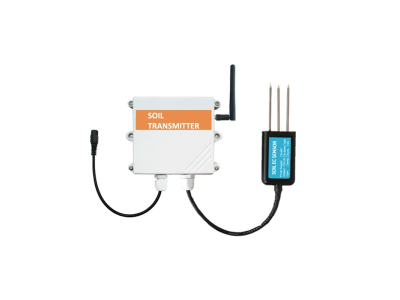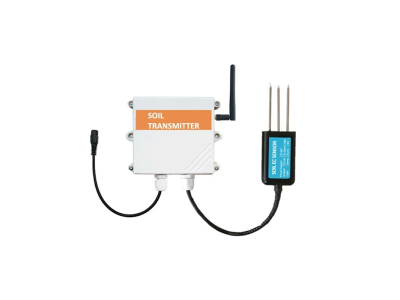
Empowering Farmers with Data: Soil Sensor Applications for Precision Farming
we will explore the applications of soil sensors in precision farming and the benefits they offer to farmers.

we will explore the applications of soil sensors in precision farming and the benefits they offer to farmers.
Introduction In recent years, the agriculture industry has seen a significant shift towards precision farming, a farming management concept that uses data and technology to optimize crop production. One of the key components of precision farming is the use of soil sensors, which provide farmers with valuable data about the soil conditions in their fields. These sensors have the potential to revolutionize the way farmers make decisions about planting, irrigation, and fertilization, ultimately leading to increased productivity and sustainability. In this article, we will explore the applications of soil sensors in precision farming and the benefits they offer to farmers.

Soil Sensors in Precision Farming Soil sensors are devices that are used to measure various parameters of the soil, such as moisture content, temperature, and nutrient levels. These sensors can be deployed in the field to provide real-time data on the soil conditions, allowing farmers to make informed decisions about their farming practices. There are several types of soil sensors available on the market, ranging from simple handheld devices to more advanced wireless sensors that can be integrated with a farm's irrigation and fertilization systems.
One of the key applications of soil sensors in precision farming is in the area of irrigation management. By continuously monitoring the moisture levels in the soil, farmers can ensure that their crops are receiving the right amount of water at the right time. This not only helps to conserve water and reduce the risk of over-irrigation, but also improves the overall health and yield of the crops. In addition, soil sensors can also be used to monitor the temperature and nutrient levels in the soil, providing farmers with valuable insights into the overall health of their fields.
enefits of Soil Sensors for Farmers The use of soil sensors in precision farming offers a wide range of benefits to farmers. One of the most significant benefits is the ability to optimize the use of resources, such as water and fertilizers. By accurately measuring the moisture and nutrient levels in the soil, farmers can avoid over-irrigation and over-fertilization, which can lead to cost savings and environmental sustainability. In addition, soil sensors can also help farmers to identify areas of the field that may be experiencing poor soil conditions, allowing them to take corrective actions to improve the overall productivity of their crops.
Another important benefit of soil sensors is the ability to make data-driven decisions about farming practices. By collecting and analyzing real-time data from the soil sensors, farmers can gain a deeper understanding of their fields and make more informed decisions about planting, irrigation, and fertilization. This can lead to improved crop yields and quality, as well as reduced risk of crop failure. In addition, the data collected from soil sensors can also be used to track the long-term health and productivity of the soil, providing farmers with valuable insights into the overall sustainability of their farming practices.
Challenges and Future Outlook While the use of soil sensors in precision farming offers many benefits, there are also some challenges that farmers may face when adopting this technology. One of the main challenges is the cost of the sensors and the associated data collection and analysis systems. While the prices of soil sensors have been decreasing in recent years, they can still be a significant investment for many farmers, especially small-scale and subsistence farmers. In addition, there may be challenges related to the integration of soil sensor data with existing farming practices and systems, as well as the need for training and support to effectively use the data collected from the sensors.
Looking to the future, there is a great potential for the continued development and adoption of soil sensors in precision farming. As the technology continues to advance, we can expect to see more affordable and user-friendly soil sensors that are accessible to a wider range of farmers. In addition, the integration of soil sensor data with other agricultural technologies, such as drones and satellite imaging, has the potential to further enhance the capabilities of precision farming. With the right support and investment, soil sensors have the potential to empower farmers with valuable data that can revolutionize the way they manage their fields and improve the sustainability of their farming practices.
Conclusion Soil sensors are a powerful tool that can empower farmers with valuable data about their fields, leading to more informed and sustainable farming practices. By providing real-time information about soil moisture, temperature, and nutrient levels, soil sensors can help farmers to optimize their use of resources, make data-driven decisions, and improve the overall productivity and sustainability of their crops. While there are some challenges to the adoption of soil sensors in precision farming, the future outlook is promising, with the potential for continued advancements in technology and increased accessibility for farmers. As the agriculture industry continues to embrace data and technology, soil sensors will play a key role in driving the future of precision farming.